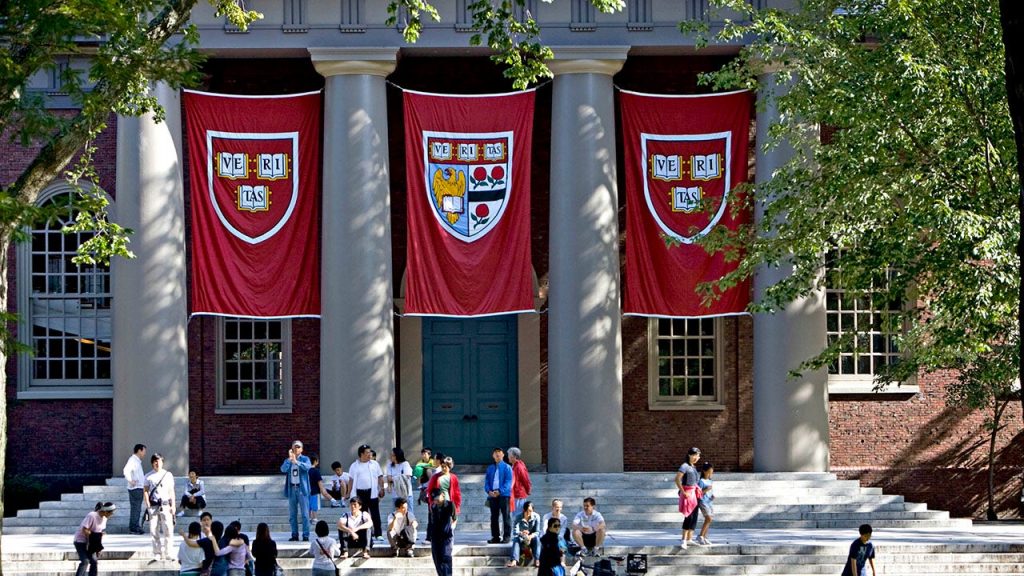In a recent development, the U.S. Department of Homeland Security (DHS) has implemented a new wave of visa revocations affecting international students at various American universities. Schools including Harvard University, the University of Michigan, Stanford University, and UCLA have reported that several student visas were revoked, with potential links to students’ involvement in protests supporting or opposing certain geopolitical issues. This situation has stirred considerable attention and concern among the academic community and international students.
| Article Subheadings |
|---|
| 1) Overview of Recent Visa Revocations |
| 2) Impacted Universities and Students |
| 3) Government Officials’ Comments |
| 4) Concerns Among Educational Institutions |
| 5) Future Implications for International Students |
Overview of Recent Visa Revocations
The U.S. Department of Homeland Security has recently taken stringent measures resulting in a wave of visa revocations impacting international students across multiple universities. These revocations were primarily discovered during routine records reviews carried out by various educational institutions. The moves have raised speculation regarding their underlying motives and potential connections to political actions taken by affected students.
According to reports, the Department has revoked numerous visas in response to broader concerns about student behavior and participation in protests that may disrupt campus activities. Authorities are focusing on ensuring that students on visas maintain adherence to U.S. laws and regulations while in the country.
Impacted Universities and Students
Several prestigious institutions, including Harvard University, the University of Michigan, Stanford University, and the University of California, Los Angeles, have confirmed cases of visa revocations. For instance, at Harvard, three graduate students and two recent graduates faced visa summonses, prompting significant concern among the student body. Similarly, the University of Michigan reported that four of its students experienced the same fate, with at least one student already having departed the U.S.
These visa dilemmas have been echoed across the nation, leading to uncertainties among thousands of international students. Universities have struggled to gather comprehensive information on the revocations, as many were reportedly informed only during internal reviews and not directly by the DHS. The lack of communication from government entities has contributed to a sense of anxiety and confusion among international academic communities.
Government Officials’ Comments
Officials, including Secretary of State Marco Rubio, have commented on the situation, indicating that visa revocations are happening “every day.” In statements made recently, he indicated that the government has the right to deny visas to students who engage in certain activities or movements deemed disruptive. The official stated, “If you are in this country on a student visa and are a participant in those movements, we have a right to deny your visa.”
Such comments underscore the administration’s focus on national security and maintaining order within educational environments. Secretary Rubio further elaborated on the nature of the protests occurring at various campuses, describing them as organized movements that interfere with the institution’s function. His firm stance reflects a growing concern about activism among international students and its implications for U.S. diplomacy.
Concerns Among Educational Institutions
The situation has raised alarm among educational institutions that rely heavily on international students for diversity and educational enrichment. The Harvard International Office communicated their awareness of the situation and emphasized that many institutions experienced similar mass revocations without prior notice or detailed explanations from the DHS.
Academics and student organizations have expressed outrage regarding these sudden visa changes. Many argue that the lack of transparency undermines the foundational principles of academic freedom and the exchange of ideas in an educational setting. Institutions are now grappling with how to reassure their international student population amid such uncertainty, while also navigating ongoing reviews of their visa programs.
Future Implications for International Students
The implications of these visa revocations could be profound for both universities and international students. If such policies continue to manifest, prospective students may reconsider applying to American institutions, fearing for their immigration status. Educational leaders worry that these actions could lead to a decline in international enrollment, impacting university revenues and the cultural diversity that benefits all students.
In the long run, the current shake-up may signal a shift in U.S. immigration policy towards more stringent enforcement measures, particularly concerning non-immigrant visa holders. As the situation evolves, many institutions are advocating for clearer communication with federal agencies to better understand compliance criteria and foster a sense of security within their international student communities.
| No. | Key Points |
|---|---|
| 1 | DHS has begun revoking visas for international students across major U.S. universities. |
| 2 | Affected institutions include Harvard, University of Michigan, and Stanford. |
| 3 | The revocations seem linked to student involvement in political protests. |
| 4 | Officials assert the government’s right to deny visas based on disruptive activities. |
| 5 | Concern grows regarding the implications for international student enrollment in American universities. |
Summary
The recent decision by the DHS to revoke visas for numerous international students has generated significant controversy and uncertainty within the academic community. As universities grapple with the ramifications of these actions, calls for transparency and clearer communication with federal authorities have become essential. The future of international students in the U.S. hinges on how these matters are addressed moving forward, as educational institutions seek to reassure their student bodies amid rising tensions over immigration policy and political activism.
Frequently Asked Questions
Question: What are the main reasons for the recent visa revocations?
The primary reason for the visa revocations appears to be linked to students’ participation in politically motivated protests and movements, which some officials view as disruptive.
Question: Which universities have reported visa revocations?
Prominent universities such as Harvard, the University of Michigan, Stanford University, and UCLA have reported incidents of visa revocations among their international students.
Question: What are the potential consequences for international students due to this policy?
International students may face uncertainty regarding their immigration status, which could discourage enrollment in U.S. universities and potentially impact the cultural diversity of campuses.


